Reeves: working people will pay ‘a bit more’ through income tax threshold freeze; OBR chief ‘mortified’ by leak – business live
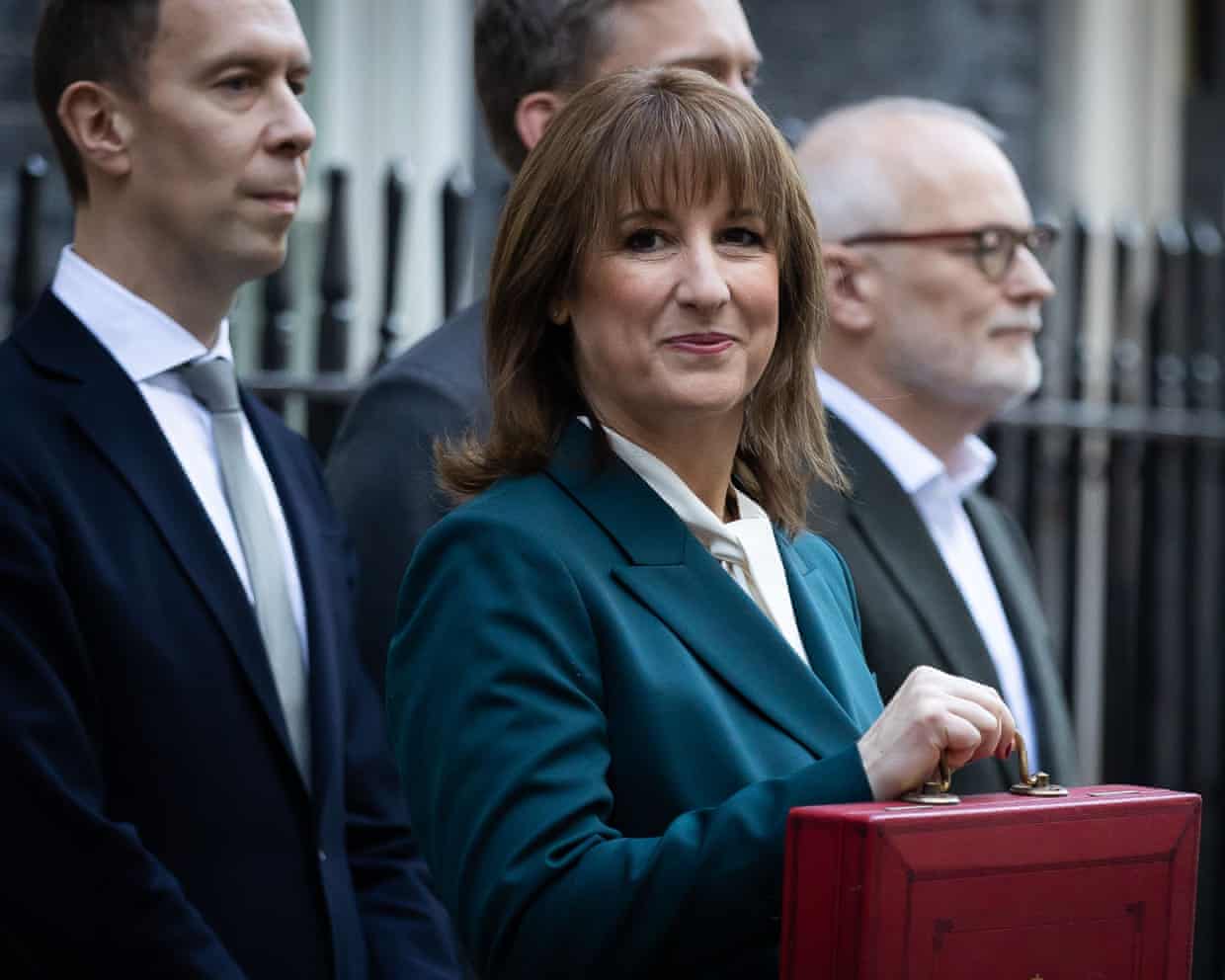
Good morning, and welcome to our rolling coverage of business, the financial markets and the world economy.It’s the morning after the budget, a time when the real story behind the fiscal event often emerges.And today, the Resolution Foundation is warning that the job of repairing the UK’s public finance is “far from complete”, and that major tax rises and cuts to public services are coming down the line.The think tank has issued its overnight analysis of Rachel Reeves’s budget, which shows that pre-election austerity and tax rises are both pencilled in.And while those back-loaded tax rises are large (bringing in £26bn), extra spending kicks in sooner, so UK debt is on track to be higher than forecast in March.
Notably, Resolution Foundation also find that less wealthy families would be better off if the chancellor had simply broken her manifesto pledges and raised income tax, rather than simply freezing the thresholds for longer and relying on ‘fiscal drag’ to take more tax off people as their wages rise,Ruth Curtice, chief executive of the Resolution Foundation, says:“The Chancellor needed to clear three crucial hurdles in her Budget – to ease cost of living pressures, tax smartly and repair the public finances,“The Chancellor was front-footed – and front-loaded – on cost of living support,Over half a million larger families will get a major income boost next spring, while typical energy bills will be cut by around £130 annually for the next three years, though support then fades away,“Sensible tax reforms will also help to level up the tax treatment of income.
But, ironically, sticking to her manifesto tax pledge has cost millions of low-to-middle earners, who would have been better off with their tax rates rising than their thresholds being frozen.“By more than doubling the headroom against her fiscal rules, the Chancellor has taken steps to repair the public finances, too.But appearances can be deceiving.Debt is up and most of the fiscal repair job has been put on hold for three years.“One hurdle that remains to be cleared is boosting growth – which has been downgraded by the OBR, along with the outlook for living standards.
Until that challenge is taken on, we can expect plenty more bracing Budgets.”9am GMT: Resolution Foundation event: ‘what the budget means for the public, financial markets and the cost of living’10am GMT: Eurozone economic sentiment index10:30am - 12:00pm GMT: IFS to present its analysis of the budgetProfessor Ciaran Martin, the cyber-security expert who will help with the OBR leak investigation, is currently Professor of Practice in the Management of Public Organisations at the Blavatnik School of Government at the University of Oxford.His biography there explains:Ciaran led a fundamental shift in the UK’s approach to cyber security in the second half of the last decade.He successfully advocated for a wholesale change of approach towards a more interventionist posture and this was adopted by the Government in the 2015 National Security Strategy, leading to the creation of the NCSC in 2016 under his leadership.Over the same timeframe, the UK has moved from joint eighth to first in the International Telecommunications Union’s Global Cybersecurity Index and the NCSC model has been studied widely and adopted in countries like Canada and Australia.
OBR chief Richard Hughes has also revealed today that Professor Ciaran Martin, former head of the UK’s National Cyber Security Centre, will provide expert input into the investigation into yesterday’s accidental early release of its Economic and Fiscal Outlook,Q: Is that a hint that a link which you thought was hidden was found by someone externally, rather than someone at the OBR accidentally publishing early?Hughes tells Radio 4’s Today programme that the report wasn’t published onto the OBR’s web page itself, but it appears there was a link to the report that “an external person” was able to access,[The report, outlining the fiscal implications of the budget measures plus the OBR’s latest forecasts, was meant to be released after the chancellor finished speaking at around 1,30pm, but instead was being reported by Reuters from around 11,40am yesterday]He says:We need to get to the bottom of what exactly happened.
We’re going to do a full investigation.There’ll be a full report to parliament.We’re going to do that work quickly so people can have assurance in our systems and that can be restored.Rachel Reeves has been grilled on Sky News on whether the budget broke the government’s promise not to raise taxes on workers.Q: You promised in your manifesto not to raise taxes on working people.
You’ve broken that pledge, haven’t you?Reeves, who is in Coventry, replies that Labour were “very specific in the manifesto” that they wouldn’t raise the rates of income tax, national insurance or VAT.But she also concedes that working people “will pay a bit more” due to the extended income tax threshold freeze (which is estimated to bring in £7.6bn in the 2029-30 tax year).The chancellor says:I do recognize that yesterday, I have asked working people to contribute a bit more by freezing those thresholds for a further three years from 2028.I do recognize that will mean that working people pay a bit more, but I have kept that contribution to an absolute minimum by closing…a number of tax loopholes and also bearing down on government spending on waste and inefficiency, and as a result, I have managed to keep that to an absolute minimum.
People recognise that the public finances are under a lot of pressure, the chancellor adds.She cites the demands on defence spending, tariffs, the disruptions to supply chains, the ongoing conflict around the world, and the OBR’s downgrade to its forecast for UK productivity growth.Q: But the Institute for Fiscal Studies say you have broken the manifesto pledge:Reeves says she isn’t denying that that the freeze will have an impact on working people.Rachel Reeves has embarked on the traditional early morning media round to defend her budget.The chancellor has rejected criticisms that her annual budget had raised taxes to fund higher welfare spending, and told Times Radio that she intended to take further measures to boost the British economy.
She said:“There’s plenty more that I’m going to do to grow our economy and make working people better off.”The head of the Office for Budget Responsibility has admitted that the fiscal watchdog “let people down” yesterday by releasing its economic and fiscal outlook, containing the details of the budget, before it had been announced by Rachel Reeves.Speaking on the Today Programme, Richard Hughes says he has written to the Chancellor and the chair of the Treasury select committee to apologize for the inadvertent error, “for which I take full responsibility”.Hughes says an investigation into what happened has been initiated, and will identify the actions we need to take to make sure it will never happen again.He also admits he feels “personally mortified by what happened”, adding:We let people down yesterday, and we’ll make sure it doesn’t happen again.
Wall Street banking giant JP Morgan has just given the UK economy, and the Starmer/Reeves government, a vote of confidence.JP Morgan has announced it will build a new three-million square foot “landmark tower” in London’s Canary Wharf financial district, to be its new UK HQ.JP Morgan says the project would contribute almost £10bn to the local economy - including the cost of construction - create 7,800 jobs, and give its employees and clients “a first-class working environment” with views across the River Thames to central London.JPMorgan chairman and CEO Jamie Dimon pointed to the UK government’s “focus on economic growth” as a factor behind the decision, saying:“London has been a trading and financial hub for more than a thousand years, and maintaining it as a vibrant place for finance and business is critical to the health of the UK economy.This building will represent our lasting commitment to the city, the UK, our clients and our people.
The UK government’s priority of economic growth has been a critical factor in helping us make this decision,”Chancellor Rachel Reeves says the move is “a multi-billion pound vote of confidence in the UK economy”, saying:“My Budget doubles down on growth as our number one priority by creating the conditions for businesses to invest and succeed,I am thrilled that JPMorganChase has chosen London for its landmark new building - a multi-billion pound vote of confidence in the UK economy and this government’s plans for growth, which are built on the rock of stability,”However…,yesterday’s OBR forecasts actually show growth over the next few years will be lower than expected:The pound has inched up to a one-month high against the US dollar, as City traders react to yesterday’s budget announcement.
Sterling traded as high as $1.3268 early this morning, the highest since 29 October, adding to yesterday’s gains.There’s general relief in the markets that Rachel Reeves doubled her headroom to hit her fiscal rule for a balanced current budget in 2029-30, from £9.9bn to almost £22bn.That pushed down UK borrowing costs yesterday.
That lowers the risk of being knocked off course by events, and could shore up Reeves and Keir Starmer’s positions,Andrew Wishart, economist at Berenberg explains that political risk has been lowered:Taking the chance offered by a helpful official forecast to avoid hard decisions has increased the Chancellor’s and Prime Minister’s chance of political survival,The fall in yields and strengthening of the pound is probably more due to the waning of political risk rather than any changes to official forecasts or the policy package,”We also have budget analysis from research institute NIESR (the National Institute of Economic and Social Research) to digest,They identify that freezing the income tax thresholds until the end of the decade will fall on poorer workers the most (a point also made by Resolution Foundation this morning).
[Reminder: higher-rate threshold and additional-rate threshold are to be frozen at £12,570, £50,270 and £125,140, respectively until 2030].NIESR also critises the ‘lack of economic vision’ in the budget:Today’s Budget locks in a high-tax, high-debt steady state in a world of low productivity growth and higher interest rates.Even the historically large tax share of GDP now planned is only just enough to stabilise – not reduce – a debt ratio stuck around 100 per cent of GDP for the foreseeable future.Macroeconomically, the Budget implies a modest fiscal tightening over the forecast.Fiscal policy shifts from being a tailwind to a headwind for growth.
Inflation is expected to be 0.3 pp lower over the next year, reflecting energy-related measures and the fuel duty freeze extension.The key question is whether the Bank of England chooses to look through this price effect or views it as altering the underlying inflation profile.Distributionally, the extension of the income tax threshold freeze to 2030 will fall disproportionately on the bottom half of the income distribution.Despite being the second Budget of this government’s term, there was a notable lack of economic vision beyond clearing fiscal hurdles.
Reforms to the triple lock, council tax, and VAT were pushed into the background while the Chancellor focused – justifiably - on meeting the fiscal rules,Even then, the £22bn of fiscal headroom is not large, and the probability of meeting the fiscal rules remains, in essence, a coin toss,Here are the key points from Resolution Foundation’s overnight analysis:Poorer working age families protected most, richer pensioners spared the worst,Policies announced in this Parliament have been progressive, particularly for working-age households,The poorest half of families have gained £90 a year on average, compared to losses of £1,000 for the richest half.
It was less progressive for pensioners however, with the poorest half losing £220 on average, while the richest half lost £680.The manifesto tax pledge has cost working people...Having previously hinted at raising Income Tax rates, the Chancellor chose instead to freeze personal tax thresholds for three more years.
But raising all rates by 1p would have been less costly than freezing thresholds for anyone with an income below £35,000.Indeed, all but the top ten per cent of the income distribution are worse off because of opting for threshold freezes over rate rises (which raise similar amounts of revenue).…But abolishing the two-child limit helps working families.Three-in-five families set to benefit from its scrapping include at least one person in work.Overall, 560,000 families will gain an average of £5,310 in 2029-30.
Pre-election austerity has been pencilled in...The departmental spending cuts announced in 2029-30, coupled with the Government’s commitment to raise health and defence spending and protect per pupil school funding, imply £6.4 billion of cuts to other departments like the Home Office, Justice and local government.
Cuts of this nature would be equivalent to 88 per cent of the average annual cuts made during the austerity years (2009-10 to 2018-19).…As have pre-election tax rises.Nearly three-quarters of the £77 billion of extra tax over the next five years (2026-27 to 2030-31) is coming after April 2029, with £26 billion in 2029-30 alone.Debt is being driven up, not down.Reducing the country’s debt was cited as one of the Chancellor’s key priorities.
But debt is rising over the forecast, and higher than forecast in March.For example, Public Sector Net Financial Liabilities (PSNLF) is rising as a share of GDP over this Parliament – from 81.3 per cent in 2024-25 to 83.7 per cent in 2028-29, before falling to 82.2 per cent in 2030-31.
Good morning, and welcome to our rolling coverage of business, the financial markets and the world economy,It’s the morning after the budget, a time when the real story behind the fiscal event often emerges,And today, the Resolution Foundation is warning that the job of repairing the UK’s public finance is “far from complete”, and that major tax rises and cuts to public services are coming down the line,The think tank has issued its overnight analysis of Rachel Reeves’s budget, which shows that pre-election austerity and tax rises are both pencilled in,And while those back-loaded tax rises are large (bringing in £26bn), extra spending kicks in sooner, so UK debt is on track to be higher than forecast in March.
Notably, Resolution Foundation also find that less wealthy families would be better off if the chancellor had simply broken her manifesto pledges and raised income tax, rather than simply freezing the thresholds for longer and relying on ‘fiscal drag’ to take more tax off people as their wages rise.Ruth Curtice, chief executive of the Resolution Foundation, says:“The Chancellor needed to clear three crucial hurdles in her Budget – to ease cost of living pressures, tax smartly and repair the public finances.“The Chancellor was front-footed – and front-loaded – on cost of living support.Over half a million larger families will get a major income boost next spring, while typical energy bills will be cut by around £130 annually for the next three years, though support then fades away.“Sensible tax reforms will also help to level up the tax treatment of income.
But, ironically, sticking to her manifesto tax pledge has cost millions of low-to-middle earners, who would have been better off with their tax rates rising than their thresholds being frozen,“By more than doubling the headroom against her fiscal rules, the Chancellor has taken steps to repair the public finances, too,But appearances can be deceiving,Debt is up and most of the fiscal repair job has been put on hold for three years,“One hurdle that remains to be cleared is boosting growth – which has been downgraded by the OBR, along with the outlook for living standards

Online betting firms to pay billions more in UK tax, Reeves confirms
Online casinos and bookmakers will pay billions of pounds more in tax under a steep rise in duties levied on their takings from British gamblers.In her second budget as chancellor, Rachel Reeves announced duty changes expected to raise an extra £1.1bn a year by 2029-30, raiding a fast-growing sector that made £12.6bn from punters last year.Shares in UK gambling firms began tumbling even before Reeves announced the change in her budget, after the Office for Budget Responsibility (OBR) – which assesses the likely impact of tax changes – accidentally published a document confirming that the industry had been singled out for higher taxes
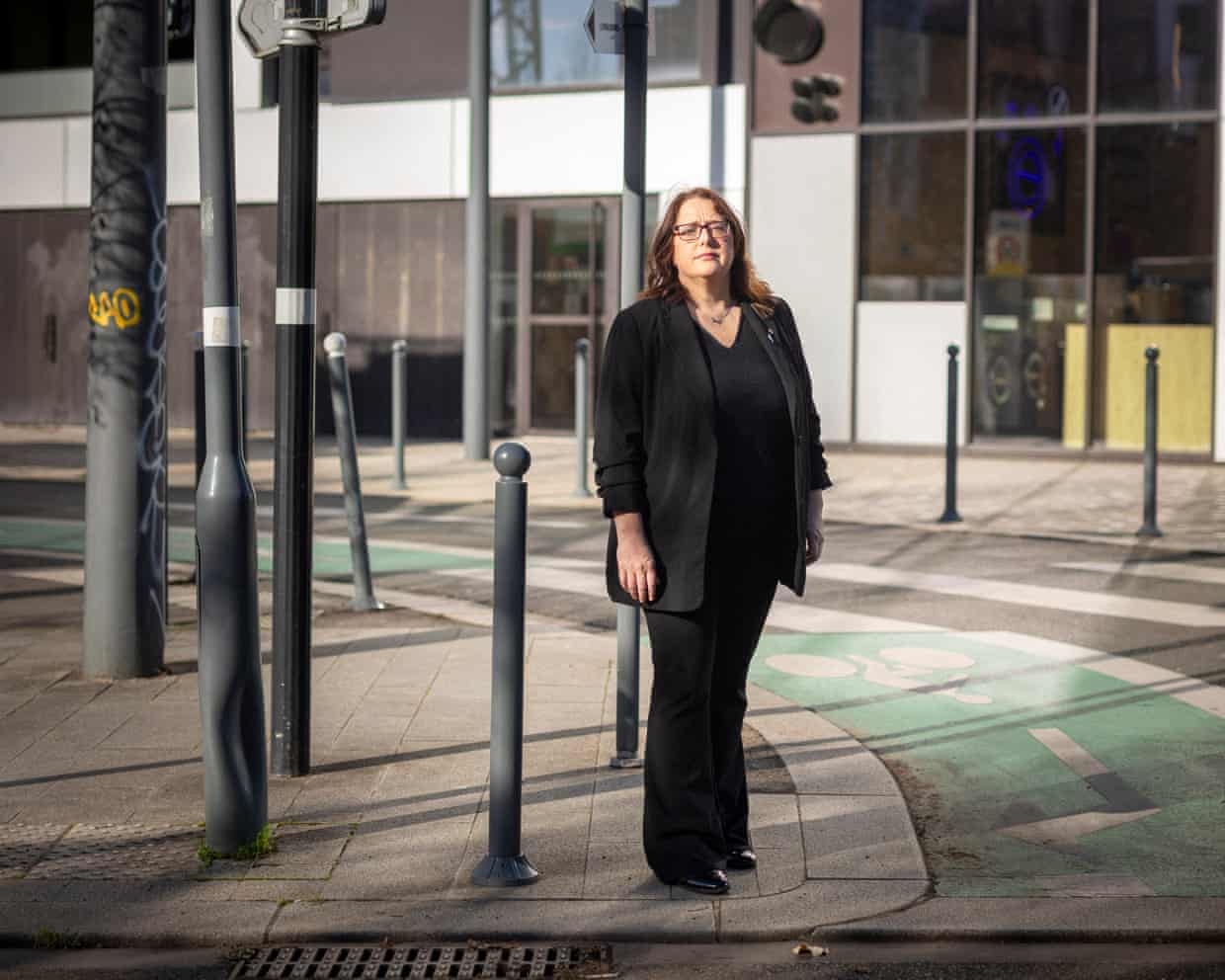
‘I didn’t even know this type of attack existed’: more than 200 women allege drugging by senior French civil servant
When Sylvie Delezenne, a marketing expert from Lille, was job-hunting in 2015, she was delighted to be contacted on LinkedIn by a human resources manager at the French culture ministry, inviting her to Paris for an interview.“It was my dream to work at the culture ministry,” she said.But instead of finding a job, Delezenne, 45, is now one of more than 240 women at the centre of a criminal investigation into the alleged drugging of women without their knowledge in a place they never expected to be targeted: a job interview.An investigating judge is examining allegations that, over a nine-year period, dozens of women interviewed for jobs by a senior civil servant, Christian Nègre, were offered coffees or teas by him that had been mixed with a powerful and illegal diuretic, which he knew would make them need to urinate.Nègre often suggested continuing the interviews outside, on lengthy strolls far from toilets, the women say

Horrific death of Kardell Lomas sparks urgent calls for new independent oversight of police
Members of the federal government’s own expert advisory panel on sexual violence have called for “urgent” independent national oversight of police after new revelations about Queensland police failures before the killing of the First Nations woman Kardell Lomas.Guardian Australia’s Broken trust investigation revealed that Lomas, a 31-year-old Kamilaroi and Mununjali woman, had sought help from police and other agencies in the months before she was killed.Her family has applied for an inquest to examine, among other things, failures by police to help Lomas, protect her from her dangerous partner, or investigate evidence of domestic violence.A statement signed by 16 of the 20 members of the expert panel selected to advise the federal government about sexual violence law reform has called on the attorney general, Michelle Rowland, to take “urgent, decisive action” in relation to the case.They said the case highlighted issues they had raised throughout the Australian Law Reform Commission’s inquiry into justice responses to sexual violence but that the inquiry’s recommendations had not gone far enough

UK gambling firms make extra £1bn from punters amid calls for tax rises
The UK gambling sector made an extra £1bn from punters in the year to March, according to new data expected to buoy calls for the chancellor to raise betting taxes in Wednesday’s budget.Betting companies made £12.6bn from services excluding lotteries in the latest 12-month reporting period, the Gambling Commission revealed on Tuesday, a 9.3% rise on the £11.5bn the industry made during the previous year

What is prostate cancer and how is it diagnosed in the UK?
David Cameron has become the latest high-profile figure to back growing calls for the NHS to start screening men, or at least those at highest risk, for prostate cancer after being treated for it himself.He joined Olympic cycling champion Chris Hoy and prostate cancer charities in saying that recent advances in diagnosing the disease mean that testing can be introduced that is much safer than traditional methods, which can produce both false-positive and false-negative results.However, others, including Cancer Research UK, disagree.On Thursday, the UK National Screening Committee will meet to discuss the latest evidence on the subject. The independent committee, which advises ministers, is under pressure to allow testing to begin of those men at highest risk: black men, those with a family history of prostate, breast or cervical cancer and men who carry the BRCA1 or BRCA2 gene
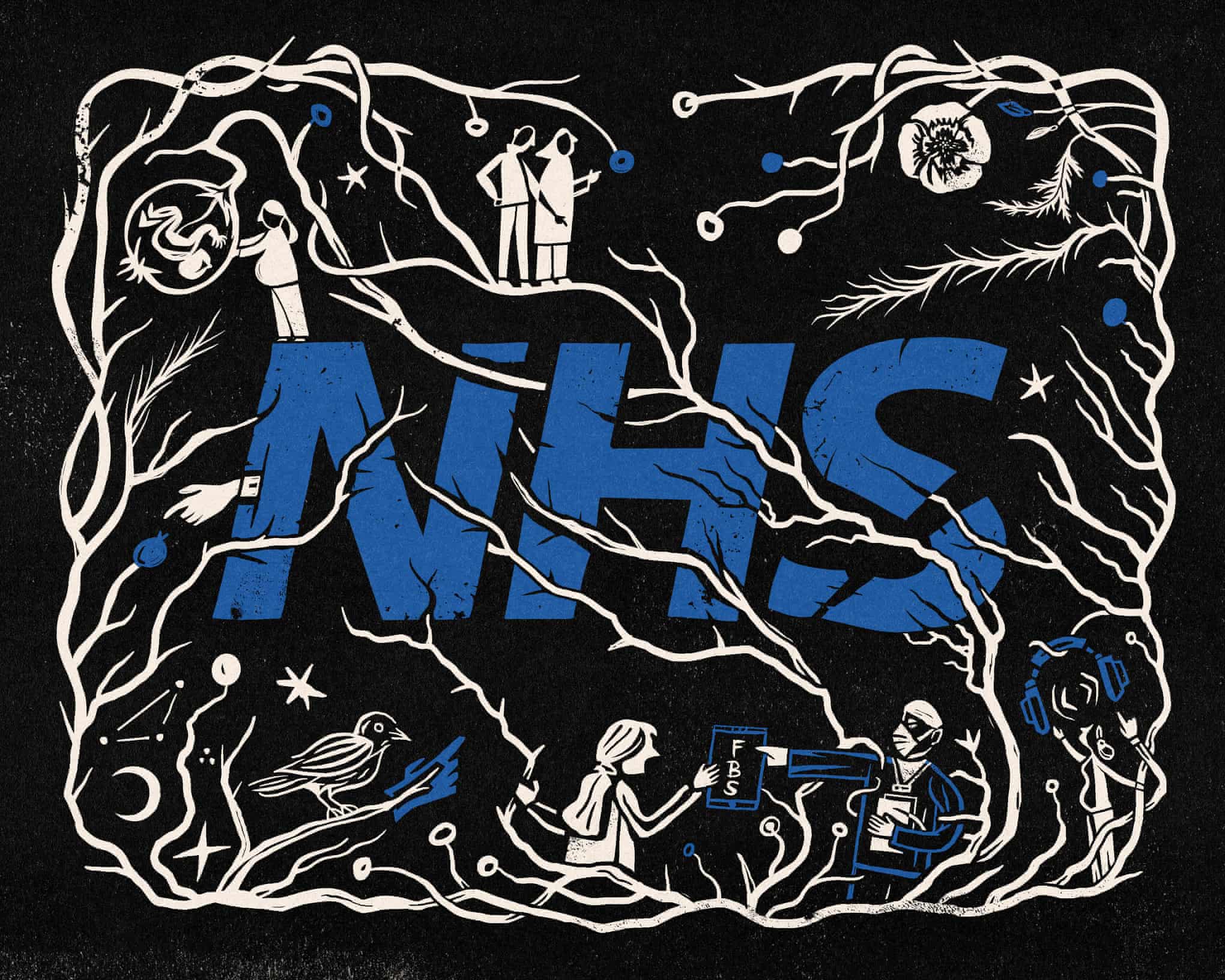
NHS directed pregnant women to controversial Free Birth Society via charity
Exclusive: NHS websites pointed women to factsheet featuring podcast by ‘dangerous’ influencers linked to baby deaths Full story: How the FBS is linked to baby deaths around the worldThe NHS has been directing pregnant women to a website that connected them to the Free Birth Society, an organisation that has been linked to baby deaths around the world after promoting labour without medical support.A number of NHS trusts are directing women who are contemplating a “free birth” to a charity website that until Monday referred to FBS podcasts as a source of “empowering stories” that can help British women “preparing for their own birth”.It contained a link to the FBS podcast, which medical experts warn is being used to radicalise women with misinformation.FBS advocates an extreme version of free birth, otherwise known as unassisted birth. It advises mothers not to use doctors or midwives and suggests they avoid pregnancy scans

Labour is still in a muddle on North Sea oil and gas | Nils Pratley

Ed Miliband confirms crackdown on North Sea exploration – but new drilling will continue

North Sea plan allows drilling while enabling Labour to keep ‘no new licences’ pledge
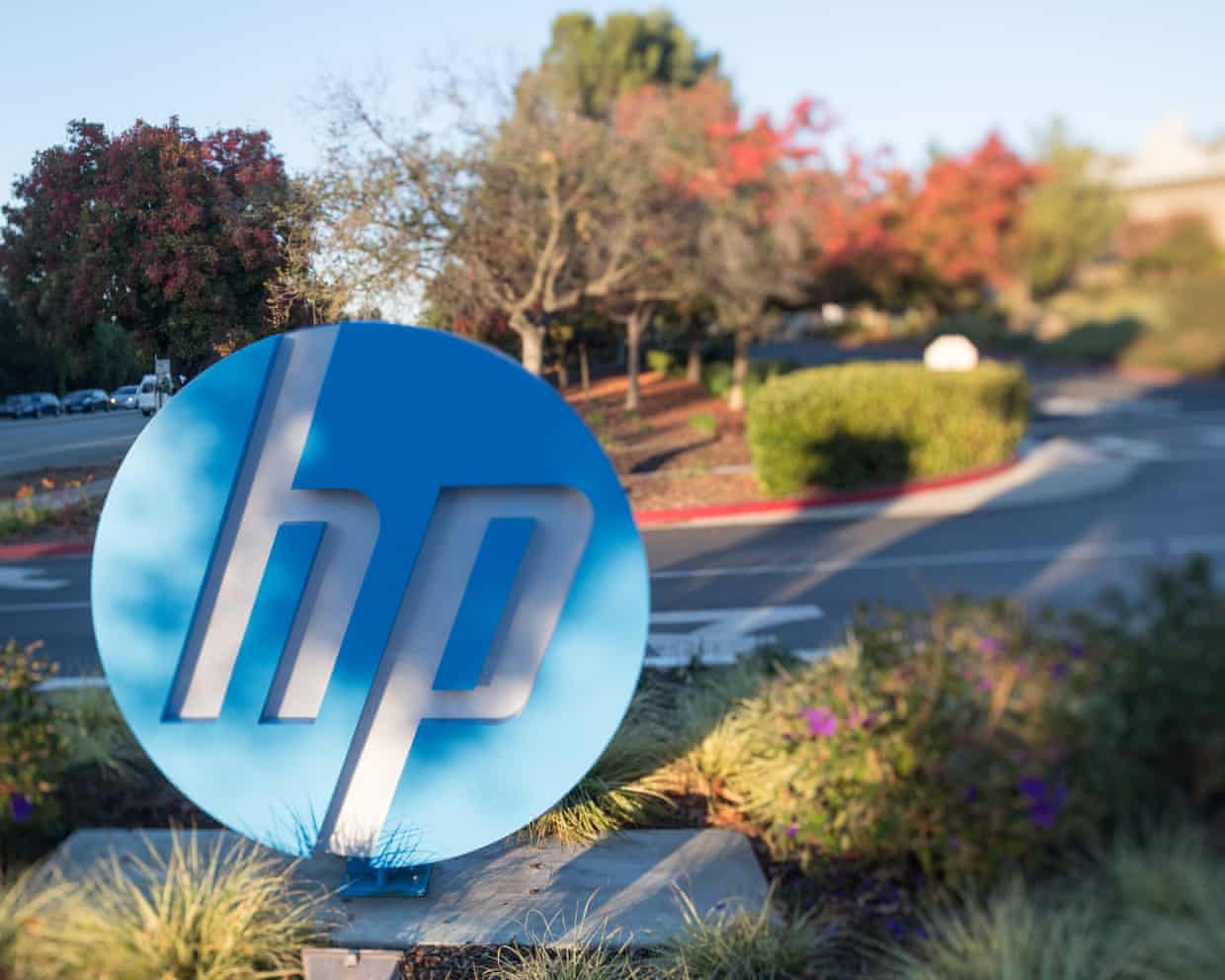
Computer maker HP to cut up to 6,000 jobs by 2028 as it turns to AI
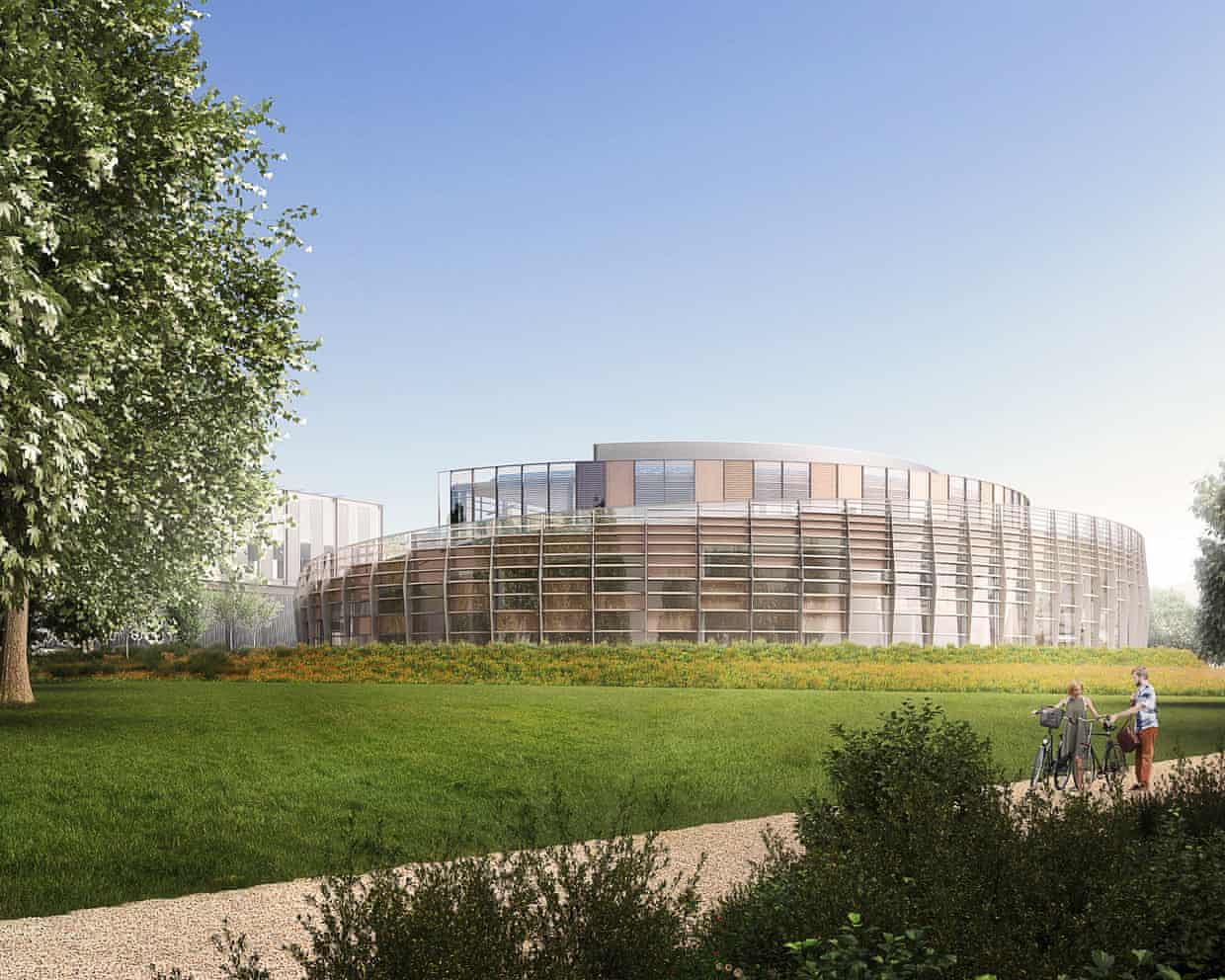
Ministers approve £750m Marlow Film Studios development after review

The latest inflation figures offer no joy – except to the gas producers whose windfall profits remain largely untouched | Greg Jericho